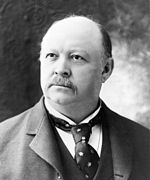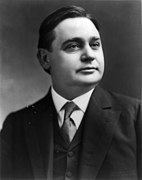| |||||||||||||||||||||||||||||||||||||||||||||||||||||||||||||||||||||||||||||||||||||||
All 357 seats in the United States House of Representatives 179 seats needed for a majority | |||||||||||||||||||||||||||||||||||||||||||||||||||||||||||||||||||||||||||||||||||||||
|---|---|---|---|---|---|---|---|---|---|---|---|---|---|---|---|---|---|---|---|---|---|---|---|---|---|---|---|---|---|---|---|---|---|---|---|---|---|---|---|---|---|---|---|---|---|---|---|---|---|---|---|---|---|---|---|---|---|---|---|---|---|---|---|---|---|---|---|---|---|---|---|---|---|---|---|---|---|---|---|---|---|---|---|---|---|---|---|
| |||||||||||||||||||||||||||||||||||||||||||||||||||||||||||||||||||||||||||||||||||||||
 Results: Democratic gain Republican gain Democratic hold Republican hold Populist gain Populist hold Silver Republican gain | |||||||||||||||||||||||||||||||||||||||||||||||||||||||||||||||||||||||||||||||||||||||
| |||||||||||||||||||||||||||||||||||||||||||||||||||||||||||||||||||||||||||||||||||||||
The 1896 United States House of Representatives elections were held for the most part on November 3, 1896, with Oregon, Maine, and Vermont holding theirs early in either June or September. They coincided with the election of President William McKinley. Elections were held for 357 seats of the United States House of Representatives, representing 45 states, to serve in the 55th United States Congress. The size of the House increased by one seat after Utah gained statehood on January 4, 1896. Special elections were also held throughout the year.
The Republican Party maintained its large majority in the House but lost 48 seats, mostly to the Democratic and Populist parties. The Republican losses were most likely due to the extraordinary gains that party made in the prior elections,[citation needed] when many normally Democratic districts voted Republican due to the severity of and fallout from the Panic of 1893. The Democratic Party recovered in the Mid-Atlantic and Midwestern districts dominated by Catholic and working-class voters. In the West, the Populist Party made large gains and several Republicans broke away over the national party platform's endorsement of a gold standard.
This election marked the zenith of the Populist Party. The Populists would lose most of their seats in the 1898 elections and thereafter slowly fade from prominence.
Cite error: There are <ref group=lower-alpha> tags or {{efn}} templates on this page, but the references will not show without a {{reflist|group=lower-alpha}} template or {{notelist}} template (see the help page).
© MMXXIII Rich X Search. We shall prevail. All rights reserved. Rich X Search


